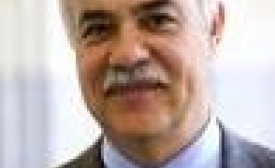Americas
When USC’s Center on Public Diplomacy embarked on its Virtual Worlds project a few years ago, I admit to being somewhat sceptical. The undertaking seemed, at the time, just too ephemeral, too abstract, too distant from the machinations of realpolitik and the grind of bureaucratic process which I experienced daily as a diplomat.
My thinking, not unlike internet applications, has since migrated.
Public opinion holds more sway now than at any previous time in history. Information and communication technologies are cheap and ubiquitous. It is in this context that the United States must increasingly engage, persuade and attract the cooperation of foreign publics to achieve its national interests. Yet, the United States must do this in a world that has changed markedly in the years since its public diplomacy institutions were created.
With help from USC’s Center on Public Diplomacy and hundreds of other individuals and groups, I recently authored a Brookings Institution report on public diplomacy and what it should look like in the coming years and decades. That report is available on-line at Voices of America: U.S.

The USC Center on Public Diplomacy hosted Paulo Sotero, Director of the Brazil Institute of the Woodrow Wilson Center, as part of the Center's Distinguished Speaker Series on the Public Diplomacy of the Emerging Great Powers.
About Paulo Sotero
It may be peculiar to comment on one’s own blog. But, having just provided a post on possible directions for Obama’s international broadcasting and public diplomacy strategy, I realized I had missed the elephant (or donkey) in the room.
Can two late thinkers, a French philosopher and British media scholar, point the way to a new American public diplomacy— or at least an American international broadcasting strategy— for the Obama era?
Let’s start with two unarguable points. The very election of Barack Obama shifts the world of public diplomacy and automatically alters the dynamic of U.S. messaging abroad. As Timothy Garton Ash put it in the Guardian, “Obama is himself a weapon of mass attraction.”
When it comes to entertainment, leisure and play, people generally exercise more freedom of choice than in any other realm of modern life. They choose to watch a movie, play chess, go to a concert, or go shopping because they find it amusing. In short, look at the way people entertain themselves and you’ll discover what people wish to do for one's own sake. If you’re looking for a window into the global village, to assess its condition and its attitudes toward every imaginable aspect of contemporary life, there can be no better portal than global entertainment.
In today's 24/7 news environment, governments have it hard. In my experience, working at the centre of UK government in the Cabinet Office, I found that government has to know its position on everything and be able to articulate it in a sound bite. You have to be either 'for' or 'against' any proposition, policy proposal or idea. You cannot be equivocal; you cannot have a nuanced view. If it's a significant policy or issue, then you have to be crystal clear. When government isn't clear, the media pursue, challenge and provoke you in 24 hour news cycles until you are clear.







